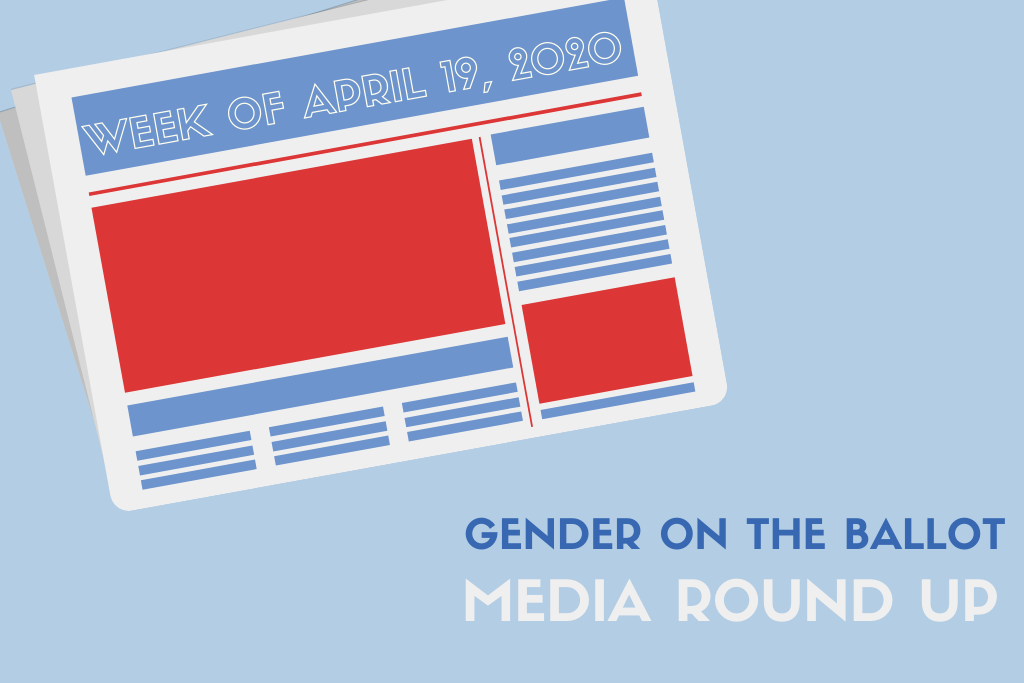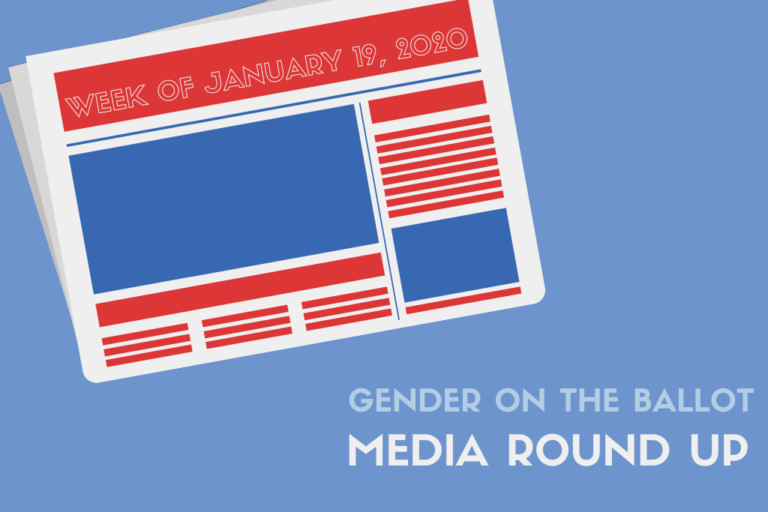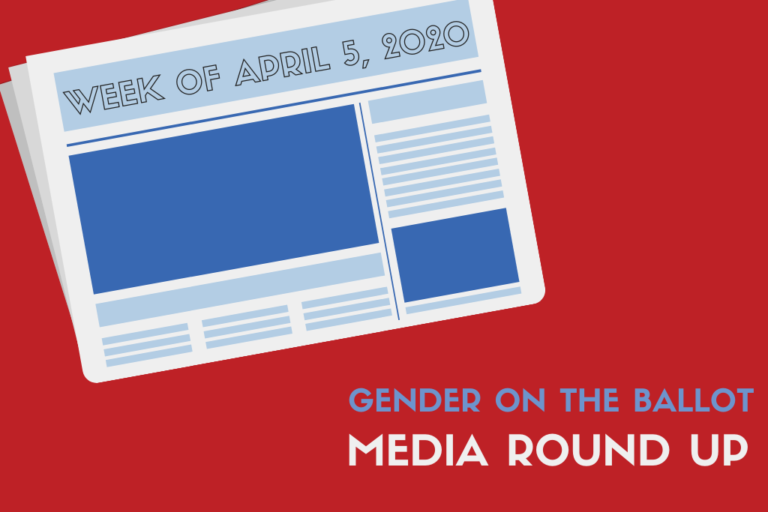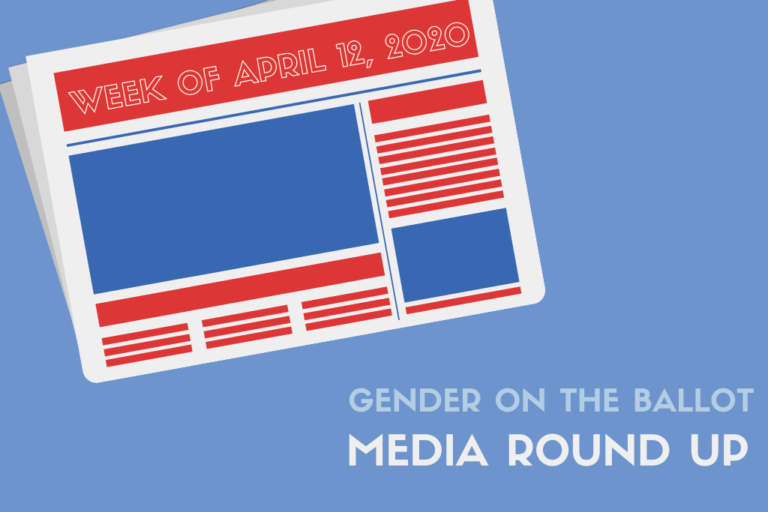Happy Friday! Welcome to our Media Round Up. Each week we’re collecting and sharing our…
Media Round Up: Week of April 19th

Happy Friday! Welcome to our Media Round Up. Each week we’re collecting and sharing our favorite gender + politics stories. Here’s what caught our eye this week:
In a global emergency, women are showing how to lead
Zoe Marks, The Washington Post
Women leaders across the US and the globe are stepping up to handle the COVID-19 crisis. While gender bias can hurt a woman in the public eye, women are showing their leadership styles work. Research shows that women tend to be more democratic and participative, often being more collaborative and compassionate communicators. After working to overcome gender stereotypes and get into elected office, women are showing how important representation is.
You can read the full article here.
The Census Needs to Count Women. The Pandemic Makes That Harder.
Emma Goldberg, The New York Times
US census data is used to determine districting and federal spending, including programs for women such as grants to prevent gender-based violence and provide family assistance. Fewer women than men are likely to participate in the census, especially Hispanic, Black, and Asian-American women. With nearly $1 trillion on the line, it’s crucial that women fill out the census to make their voices heard, and avoid losing their fair share of funding and political power.
You can read the full article here.
This state says it has a ‘feminist economic recovery plan.’ Here’s what that looks like.
Frances Nguyen, The Lily
With women being disproportionately affected by COVID-19, it’s critical to focus recovery proposals on helping them. A new plan proposed by Hawaii’s Commission on the Status of Women hopes to seize this opportunity to create a more equitable system for women, especially those with unique needs. Click to read an interview with the commission’s executive director about why the plan is necessary, and how it can work across America.
You can read the full article here.
Ferraro and Palin: What it meant to have a woman running mate then — what it would mean for Biden now
Sarah Ewall-Wice and Caitlin Huey-Burns, CBS News
When Geraldine Ferraro accepted the vice presidential nomination in 1984, she said it was a signal that “There are no doors we cannot unlock. We will place no limits on achievement. If we can do this, we can do anything.” 24 years later, Sarah Palin was selected as a running mate, and in 2020, Joe Biden has also promised to choose a woman. Women vice presidential candidates have shifted the landscape before, and in a year where women voters will be critical, we may see new impacts on how women run for office.
You can read the full article here.
Female world leaders hailed as voices of reason amid the coronavirus chaos
Jennifer Hassan and Siobhán O’Grady, The Washington Post
COVID-19 has shifted attention away from the 2020 presidential race and onto the governors and heads of states handling the global health crisis. Now, there’s a new spotlight on international women leaders who are tasked with managing the crisis in their countries. Take a look at profiles from New Zealand, Norway, Iceland, Germany, and Taiwan to see how women are stopping the spread of the coronavirus and minimizing the effects of the crisis.
You can read the full article here.
Five stories not enough? Sign-up for the Women & Politics Institute’s weekly newsletter, the WeLead Reader.






